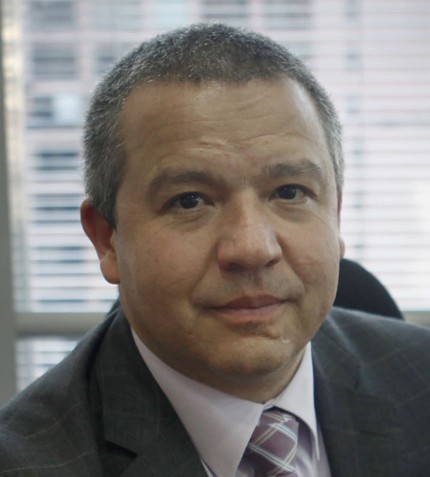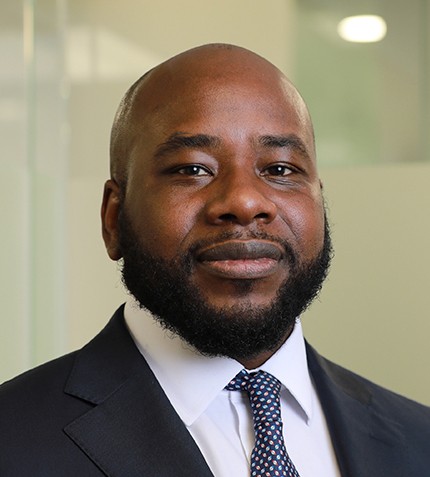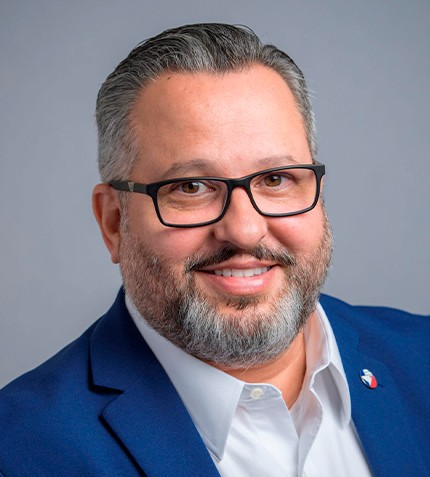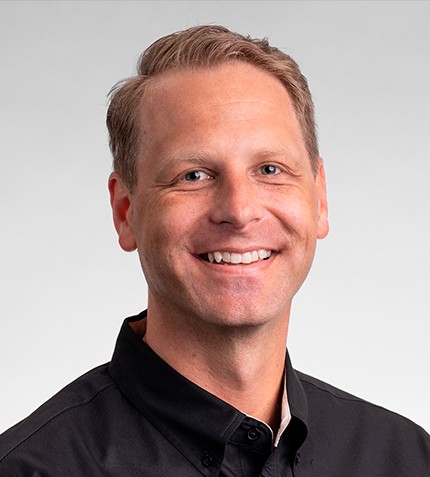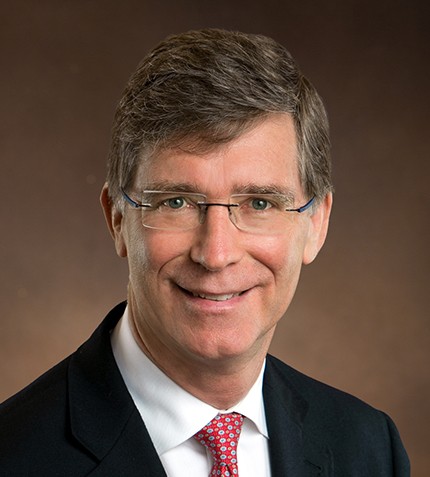
"Upon conclusion of his aero-magnetic analysis of our Kavango Basin, Bill Cathey, president of Earthfield Technology, who has spent 30+ years evaluating sedimentary basins globally, stunningly concluded that “nowhere in the world is there a sedimentary basin this deep (30,000 feet) that does not produce commercial hydrocarbons”.
Jay Park
CHAIRMAN, RECONAFRICA
Can you introduce ReconAfrica and explain the circumstances surrounding the company’s creation?
Dating back to 2013, ReconAfrica‘s founding shareholder, Craig Steinke, armed with an international data set, hired a group of international geoscientists who collectively completed an exhaustive worldwide search for prolific source rocks. Ultimately, this search led them to Namibia. More serendipitously, they found a high-resolution aeromagnetic survey over their lands of interest within the government data bank that had not yet been interpreted. Once they had the data interpreted in Houston Texas, by an expert in this field, they realized they had discovered a large, deep (up to 30,000 feet) sedimentary basin. Mr. Steinke immediately licensed 6,300,000 acres (25,000 sq km) over the entire new Kavango Basin within the Namibian border. There after Mr. Steinke brought in a group of investors with expertise in finance, geoscience and petroleum regimes (myself). The group then collectively, as part of the plan to open up the Kavango Basin, took ReconAfrica public on the Toronto Venture Exchange in September 2019 (TSXV:RECO).
What experience does the team behind ReconAfrica have in developing oil and gas projects?
I am an energy lawyer with over 40 years of experience advising on oil and gas projects. I formed part of the initial investment team of ReconAfrica in 2015, and am now chairman of the board. Scot Evans, former VP of Halliburton and a geologist, is our CEO; Doug Allen is our SVP investor relations; and Nick Steinsberger, a drilling and completions expert, is our SVP of drilling and completions.
ReconAfrica has a broader technical team which includes industry figures of some repute, including Dan Jarvie, a geochemist who was a key member of the team that opened up the Barnett for Mitchell Energy; and Bill Cathey, president of Earthfield Technology, who has spent 30+ years evaluating sedimentary basins globally. Upon conclusion of his aero-magnetic analysis of our Kavango Basin, Bill stunningly concluded that “nowhere in the world is there a sedimentary basin this deep (30,000 feet) that does not produce commercial hydrocarbons”.
ReconAfrica also has local expertise, such as Dr. Ansgar Wanke, a geologist who has worked at the University of Namibia since 2008, and Dr. James Granath, a structural geologist who identified the regional rift system that formed the Kavango Basin, and which creates the setting for conventional hydrocarbon traps in the Basin. Shiraz Dhanani, former country lead of BP in Libya and expert on Africa rift systems, is also a Board Member.
We also have a very capable team in our Vancouver office, with Carlos Escribano as CFO and Anna Tudela as Corporate Secretary.
ReconAfrica’s asset is described as an organic-rich Whitehill Permian source rock. Can you elaborate on this type of geology and how is differs to other deposits found in Southern Africa?
In the Kavango Basin, we anticipate organically-rich marine source rocks comparable to the Permian age Whitehill. Unlike the analog in South Africa, which is mostly gas, we believe that our source rock include content in the oil window and therefore we expect to establish a hydrocarbon kitchen that will generate oil. The presence of rift basin tectonics, unlike in South Africa, creates the potential for conventional resources.
In Namibia, the government owns the surface rights, and importantly these lands are endowed with a natural deep productive aquifer. Additionally, other excellent infrastructure includes good asphalt and gravel roads throughout the block. Consequently, we believe that operations in this area are going to be smooth.
What led to ReconAfrica to acquire an exploration licence in Botswana in 2020?
In June 2020, our aero-mag survey suggested that the Kavango Basin may extend into Botswana. We bought additional data, established the veracity of the speculation, and acquired an exploration licence in Botswana over an area of 2.45 million acres, bringing our total to 8.75 million acres (over 35,000 sq km). We will start working on our 4-year exploration licence Botswana as soon as permitting work is completed there and as soon as we have finished our initial three well program in Namibia.
How has the company financed operations, and where will the recently raised money be put to use?
In September 2019, ReconAfrica went public on the TSXV, (RECO) at C$0.20 per share, a figure that has more than quadrupled by September 2020, despite the challenging market conditions. On August 20th, 2020, we completed a twice upsized C$23 million unit financing at C$0.70, that will provide the funds we need to drill three wells in the Kavango Basin. We intend to start in the drilling campaign in late Q4 2020.
In an earlier financing in 2020, we raised funds to purchase a drill rig in Houston. It is currently being refurbished before being transported to Namibia. The rig will allow ReconAfrica to drill up to 12,000 feet (3,500 m) in depth, in order to test the presence of the working hydrocarbon system which we believe exists in the Kavango Basin. As a result, we are fully funded to drill Namibia’s first onshore wells since the 1980s.
Namibia is in its infancy as an oil and gas jurisdiction. How has your experience been operating there?
Although Namibia does not have commercial discoveries producing oil and gas yet, extractive industries are well understood and regulated due to the country’s history of mining. ReconAfrica’s experience has been very good, with respect to the terms of the grant, the capability of the local government officials, and also their management. By way of example, when the Covid issues arose, the government wrote a letter to the Namibia Petroleum Operators Association offering immediate assistance. Furthermore, the Namibian Ministry of Mines and Energy declared drilling an essential service, and helped us plan to bring our drilling crew safely to site in 4Q 2020. Namibia actively promotes responsible resource development.
What would you like to achieve with ReconAfrica in the next two years, and do you have a final message for our audience regarding the Kavango Basin project?
In the first half of 2021, we will have the results of our first three tests as well as additional seismic information, and will be undertaking further drilling activities to evaluate the resource opportunities across the length and breadth of the Kavango Basin. Our initial goal is to prove an active petroleum system in the Kavango Basin. We also expect to meaningfully advance partnering (farm-out) negotiations during 2021. By sometime in 2022, assuming drilling success, we believe it is distinctly possible that we could have initial production in the Kavango Basin. This would be a wonderful achievement for Namibia and for our investors.
I would describe ReconAfrica’s Kavango Basin asset as unique kind of exploration opportunity – a big company play held by a small company. We have the team, experience, proprietary data and the funding to find out what’s here. Since we have been demonstrating the execution of our plan, people are coming to have faith that this will happen, and I assure you it will. These are going to be some wells to watch!




